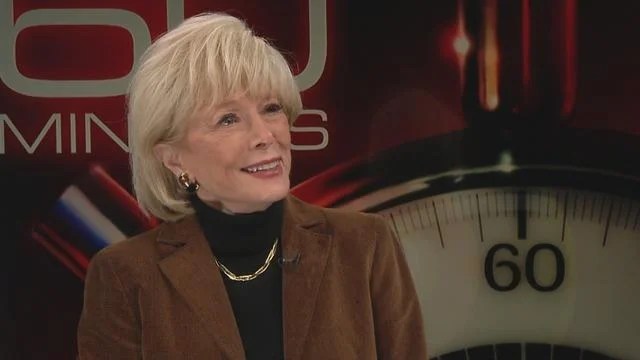The world of journalism is both fascinating and complex, particularly when it comes to investigative reporting. Among the most esteemed platforms for such journalism is the long-running television program "60 Minutes." Known for its intense storytelling and in-depth investigations, the show has become a staple in American households. The reporters of "60 Minutes" are not just journalists; they are storytellers, advocates for justice, and sometimes, catalysts for change.
Each week, millions tune in to watch the captivating segments that delve into the core issues affecting society, politics, and culture. The unique format of "60 Minutes" combines interviews, field reports, and expert analysis, providing a comprehensive view of the stories that matter most. What sets the program apart is its remarkable team of reporters, each bringing their own style, background, and expertise to the table.
As we explore the world of "60 Minutes reporters," we gain insight into their personal lives, professional achievements, and the driving forces behind their compelling narratives. These journalists not only inform the public but also hold powerful entities accountable, ensuring that the truth prevails. Join us as we delve deeper into the lives and careers of these remarkable individuals who shape the landscape of modern journalism.
What Makes 60 Minutes Reporters Unique?
The reporters of "60 Minutes" stand out for several reasons, including their experience, dedication, and commitment to uncovering the truth. These individuals often have decades of journalistic experience, allowing them to navigate complex stories with skill and integrity. Their unique abilities to connect with interviewees and extract meaningful insights are what make each segment resonate with viewers.
How Do 60 Minutes Reporters Prepare for Their Stories?
Preparation is key for "60 Minutes reporters." Their process often includes extensive research, interviews with experts, and fieldwork to gather firsthand accounts. This thorough groundwork allows them to present stories that are not only informative but also engaging. Here’s a glimpse into their preparation process:
- Researching background information and context
- Conducting preliminary interviews with sources
- Traveling to locations for on-the-ground reporting
- Collaborating with a team of producers and editors
What Challenges Do 60 Minutes Reporters Face?
Despite their expertise, "60 Minutes reporters" face numerous challenges in the field. These can range from gaining access to sensitive information to dealing with powerful figures who may not want the truth to be exposed. The pressure to produce compelling yet accurate content can also be intense. Here are some common challenges:
- Maintaining objectivity in emotionally charged stories
- Navigating potential legal issues
- Competing with misinformation in the digital age
- Balancing deadlines with thorough reporting
Who Are the Notable 60 Minutes Reporters?
Throughout its history, "60 Minutes" has been home to several notable reporters who have left an indelible mark on journalism. From the iconic Morley Safer to the current crop of talented journalists, each has contributed to the show's legacy of excellence. Below, we explore the biographies of a few key reporters.
What Is the Biography of Current 60 Minutes Reporters?
| Name | Age | Years Active | Notable Works |
|---|---|---|---|
| Scott Pelley | 65 | 1989-Present | Interviews with world leaders and coverage of major events |
| Lesley Stahl | 82 | 1971-Present | Investigative reports on healthcare and politics |
| Bill Whitaker | 63 | 2014-Present | Coverage of social justice issues and international affairs |
How Do 60 Minutes Reporters Impact Society?
Beyond simply reporting the news, "60 Minutes reporters" play a crucial role in shaping public opinion and promoting accountability. Their investigative pieces often lead to significant changes in policy, legislation, and public awareness. By bringing critical issues to light, they encourage dialogue and action among viewers.
What Future Trends Do 60 Minutes Reporters Anticipate?
As journalism continues to evolve, "60 Minutes reporters" are adapting to new technologies and changing viewer preferences. They anticipate a future where storytelling becomes even more dynamic, utilizing multimedia elements to engage audiences. The rise of digital platforms also means that their work can reach a broader audience than ever before.
How Do 60 Minutes Reporters Maintain Integrity?
Integrity is the cornerstone of effective journalism, and "60 Minutes reporters" uphold this principle through rigorous fact-checking and adherence to ethical standards. They work tirelessly to ensure that their reports are balanced, fair, and rooted in truth. By prioritizing integrity, they foster trust with their audience and uphold the values of responsible journalism.
What Legacy Will 60 Minutes Reporters Leave Behind?
The legacy of "60 Minutes reporters" is one of courage, dedication, and commitment to the truth. As they continue to tackle pressing issues and tell impactful stories, they inspire future generations of journalists. Their work not only informs the public but also serves as a reminder of the vital role that journalism plays in a democratic society.
In conclusion, the world of "60 Minutes reporters" is rich with stories, experiences, and challenges. Their unwavering commitment to uncovering the truth and holding the powerful accountable ensures that they remain at the forefront of American journalism. As audiences continue to seek out reliable news sources, the impact of these reporters will undoubtedly resonate for years to come.
Also Read
Unveiling The Enigmatic Charm Of Liv TylerPhil Wickham's Journey: Love And Resilience Amidst His Wife's Cancer Battle
Discovering The Life And Career Of Kaylee Hartung
Carmen Dell'Orefice: The Timeless Icon Of Fashion
Mastering The Art Of Wudu: A Comprehensive Guide
Article Recommendations
- Mark Valley Daughter
- Adriana Chechik Boyfriend
- Tyus Jones And His Wife Carrie Jones
- Tyler Hynes Children
- How Much Does Shemar Moore Make Per Episode
- Bruce Willis Demi Moore
- Justin Fields Wife
- Adam Sandler Political Views
- Sandra Draisaitl
- Nicholas Hagen Parents




